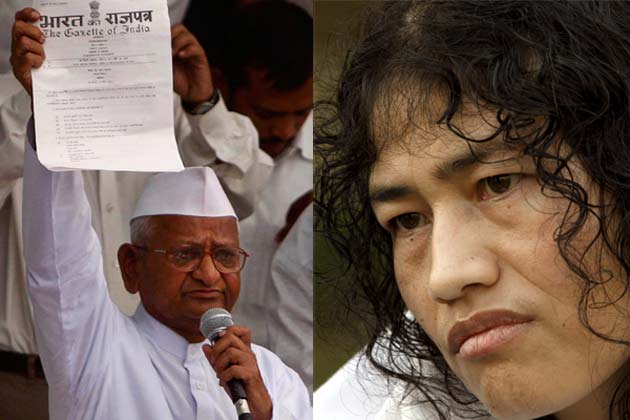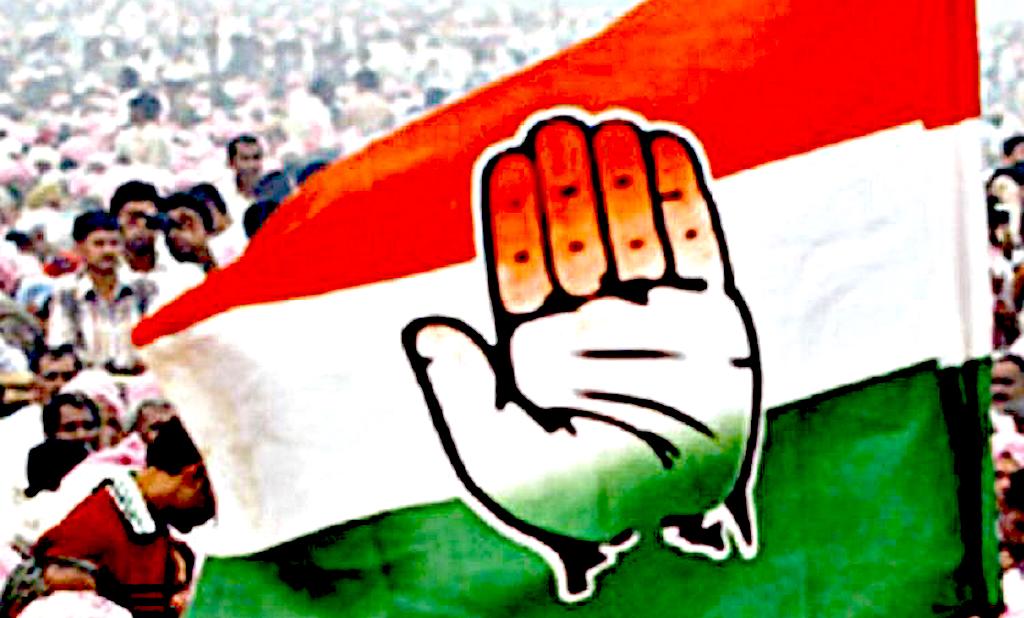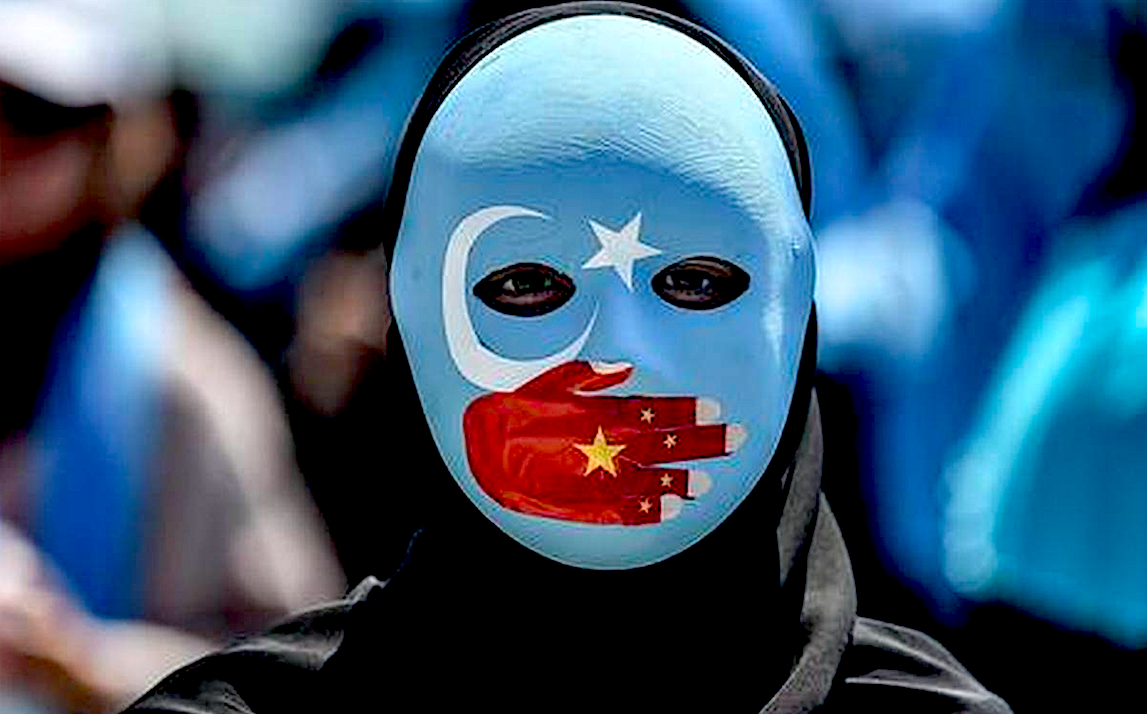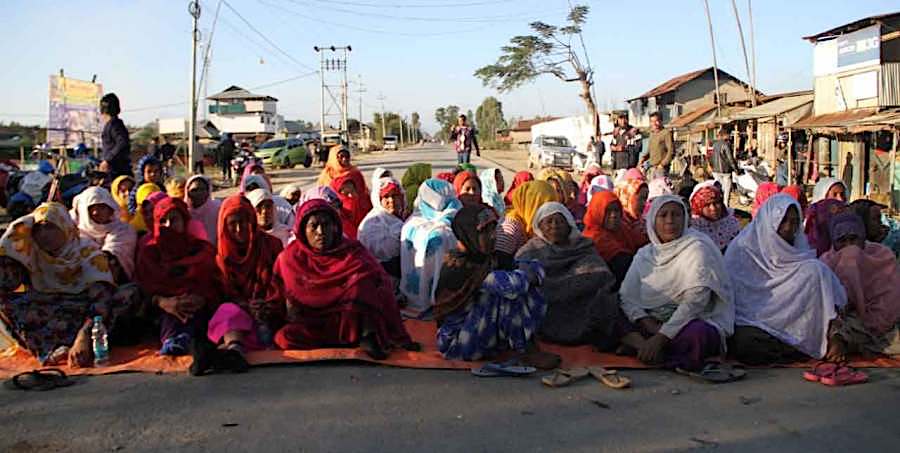Rituparna Chatterjee, BeyondHeadlines
Irom Sharmila Chanu and Anna Hazare have one thing in common – the ability to fast indefinitely for what they perceive is right. But the similarities end there.
She has been on a political fast for 11 years but her silent resilience moves you when you realize the sheer magnitude of what she is single-handedly trying to achieve.
 Far from the glare of studio lights of television channels and tangled wires of a hundred microphones, in the hilly haven of Manipur, Irom Sharmila Chanu has launched a movement that has found resonance with her people. The Manipuris have christened her Menghaobi or ‘The Fair One.’
Far from the glare of studio lights of television channels and tangled wires of a hundred microphones, in the hilly haven of Manipur, Irom Sharmila Chanu has launched a movement that has found resonance with her people. The Manipuris have christened her Menghaobi or ‘The Fair One.’
In and out of jails for the past 11 years, Manipur’s ‘Iron Lady’ Sharmila has a tube running down her nose as the government alternately force feeds her and incarcerates her for attempting to take her own life through her hunger strike.
Manipur is far removed, in more ways than one, from the political nerve centre of the national capital. But Irom is not a stranger to Jantar Mantar in the heart of Delhi, where she herself has launched a series of protests in the past to seek the repeal of a law that gives the state army draconian powers.
Though a recipient of many awards and international commiseration over her iron resolve to fast unto death unless the Armed Forces Special Powers Act (1958) is repealed, Sharmila’s movement has somehow failed to capture the imagination of India’s burgeoning urban middle-class who can better identify with issues that affect their lives directly.
Veteran activist Anna Hazare launched a similar fast unto death on April 5, 2011 at the Jantar Mantar for tougher anti-graft legislation which had drawn the support of thousands.
Hazare’s demands for a bill that gives an independent ombudsman police-like powers to prosecute ministers, bureaucrats and judges had tapped into widespread public anger over a spate of graft scandals that tarnished the country’s image.
The image of Hazare’s apparent frailty as he camped on a thin mattress in the afternoon sun in a street-side platform at the protest ground was captured by Indian photojournalists and replicated the world over as a septuagenarian’s lonely struggle to rid bureaucracy of corruption.
The image tugged at the heart strings of thousands of Indians fed up with the scourge and exploded into a social network-driven mass movement hijacked by political opponents and celebrities.
Prime Minister Manmohan Singh, under tremendous opposition pressure, agreed to discuss the Jan Lokpal bill when parliament next convenes in July. He also gave in to Hazare’s demand for activists to join officials in drafting the bill.
Why has Hazare’s movement been a success?
So why has Hazare’s populist movement succeeded in eliciting a speedy response from a sluggish government machinery when Sharmila’s didn’t over 11 years?
It has much to do with the fact that corruption as a broad subject is easier understood by the Indian middle class than an obscure martial law that is perceived to have no bearing on the lives of the majority of people.
Hazare’s ‘people’s protest’ also came at a time when India’s wired urban middle and upper middle classes are undergoing a radical transition. With more households connected to internet in 2011 than ever before, Indians are embracing social networking to exchange, disseminate and process information – a powerful tool that came after Sharmila’s time.
The media has had a field day while covering Hazare’s protests, endorsed by celebrities – from glamorous film stars, sports personalities and socialites to relationship experts and politicians – faces that cemented the tottering campaign into a David vs Goliath battle against graft.
The national media has been largely silent about Sharmila’s crusade against AFSPA in one of India’s most resource-rich but remotest corners whose people often complain of apathy and neglect from the central government.
Why has the Centre ignored Sharmila?
The government’s quick acquiescence to Hazare’s demands while ignoring Sharmila’s, bears testimony to the geo-political importance (or lack of it) of the North East in a country where caste divides can shift the balance of power.
A populist movement ahead of crucial Parliamentary election is harder for the government to ignore.
AFSPA has been imposed in Manipur and most of the Northeast since 1980. It allows the army to use force, shoot or arrest anyone without warrant on the mere suspicion that someone has committed or was about to commit a cognisable offence. The Act also prohibits any legal or judicial proceeding against army personnel without the previous sanction of the Central Government.
Sharmila, who has been unable to convert her localized crusade into a national movement, says the martial law did not help curb insurgent groups as was intended to, but has sparked a seething resentment among the people of the North East.
An irregular access to national media, apathy from a justice system overburdened with pending political cases, political incarceration and a thorny subject – may have worked to relegate Sharmila crusade since November, 2000 to the backburner.
But to say she achieved nothing would be injustice to Sharmila’s tremendous personal sacrifice.
Under intense pressure, the government in 2004 constituted a five-member committee under the Chairmanship of Justice B P Jeevan Reddy, a former Supreme Court judge. The committee was to review the provisions of AFSPA and advise the Government on whether to amend the provisions of the Act to bring them in consonance with the obligations of the government towards protection of human rights; or to replace it with a more humane Act.
Although the government hasn’t taken any concrete action on the findings of the Reddy committee that suggested, among other things, the repeal of the Act, it helped bring a burning issue to the forefront.
Rituparna Chatterjee is a freelance journalist based in Kolkata. The views expressed in this article are the author’s own and do not necessarily reflect BH’s editorial policy.









